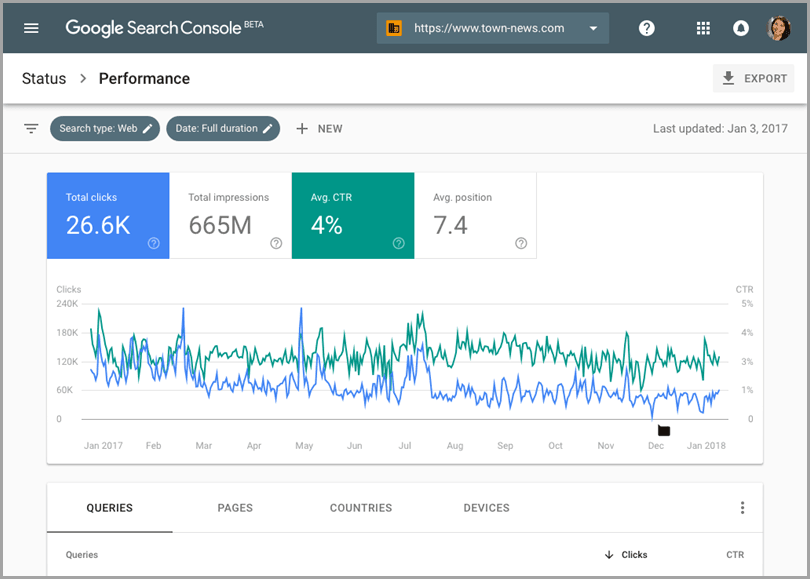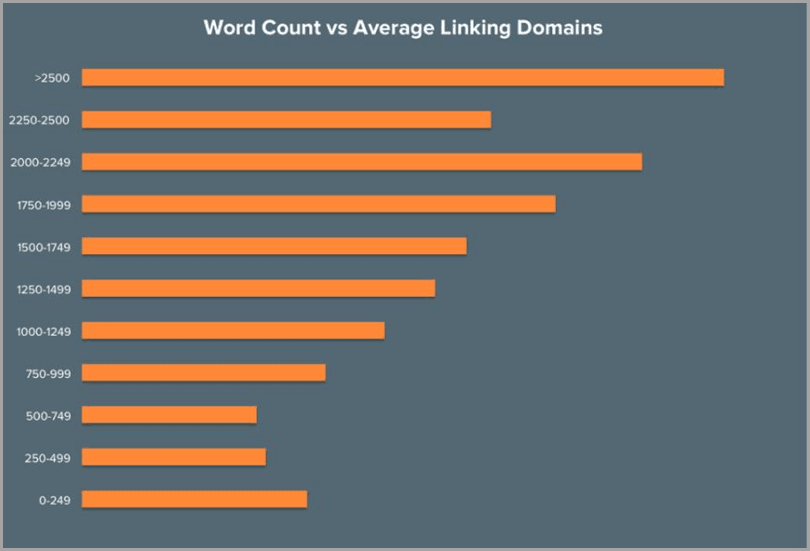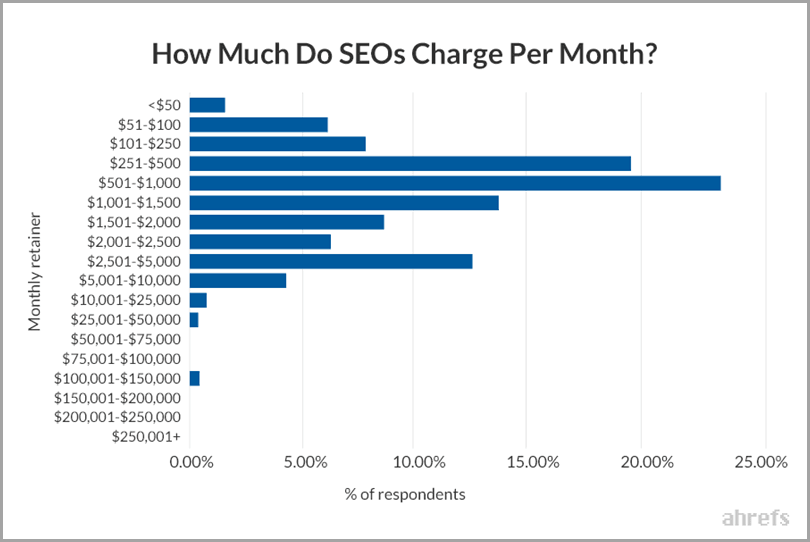
When doing competitive research, you may notice that other businesses in your industry might have a lot of content, which leads to the common belief that more content equals higher search engine rankings.
But while many feel that the best option is to churn out as much content as quickly as possible to make their website more visible and increase traffic, the truth is that pushing out as much content as possible won’t necessarily help improve your site’s rankings.
In this article, I’ll explain why amassing more content won’t necessarily boost your SEO. I’ll also talk about how it can actually hurt you in the long run, and then go over other focuses for your content that will help boost your rankings.
More content doesn’t necessarily mean more views
Regularly updating your website with new content helps your website stay relevant in the eyes of readers and in the eyes of Google’s search algorithms. But it’s also not necessarily going to be helpful for you to churn out multiple blog posts with 200-500 words.
In fact, many marketing experts believe we are entering into a time of content overload. Multiple posts on the same subject, each claiming to be the “definitive guide,” or churning out low quality, rushed posts rife with typos, can hurt your brand and confuse your readers. It can also result in having your reader look elsewhere for information.
Obviously, having very little content statistically narrows your chances of readership. However, there is a sweet spot for content, and this sweet spot is attained when your website or blog has addressed as many topics that are genuinely relevant to your product or service. These posts should be well-written and in-depth with keywords that will help boost their ranking on search engines. They should also contain embedded links to reliable sources, and deliver the sort of helpful information that will gain you lots of backlinks.
While there are many reasons why more content doesn’t necessarily equal better SEO, there are also numerous factors you can focus on to maximize your SEO that doesn’t involve pumping out content.
Outdated content: An SEO killer
Outdated content loses relevance over time naturally. After all, readers are less likely to click on an article from 2018 than one from 2021. However, search engine algorithms also factor in the age of content in their search engine rankings. Studies suggest that articles start to be identified as outdated after two years. Furthermore, old posts are more likely to have outdated links or links to URLs that have changed over time.
Instead of focusing on amassing as much content as possible, try revamping old content. You can do this by editing the article to be more up to date and mentioning your changes in the title (the words update and the current year seem to help SEO). It’s also vital to edit posts for typos, grammatical mistakes, and spelling errors. These instances are flagged by Google’s algorithm and will cause your webpage to lose rankings. Check all of the links to make sure they are still working.
However, avoid the temptation to repost the same article with the revisions, as you’ll lose all the backlinks you’ve gained over the years and will have to start from scratch.
One great way to start this process of updating old content is to use SEO tools such as Google Search Console that will tell you which articles get several impressions, but lack solid click through rates. The best pieces of content to use are the ones that rank 11th through 50th, which means they are on the 3rd or 4th page of Google. These articles just need a little boost to get a higher ranking.
In our consumerist culture of disposable items, it’s easy to assume that old content needs to be trashed after being used for a long period of time. However, you can also build on the hard work of previous years to make your older content more relevant by revising or updating it. It’s a waste to ignore old content that just needs a bit of a tune-up in order to attain higher SEO rankings.
Longer content ranks higher
With websites and blogs that churn out content, there is a pattern that the content tends to be smaller in characters, less well-written, and more repetitive. After all, three posts of 500 characters about the same topic are about the same work as one post about the topic that is 1500 characters. The best web pages for SEO tend to be longer-form articles, with recent studies suggesting that articles with a word count of 2500 or more be ranked the highest on search engines.
It’s not necessarily the word count that affects the SEO, however. Longer articles tend to have more in-depth information, so they are more likely to gain backlinks. Think about it this way: if you were looking to send your friend some information about buying a home, would you send them one link with comprehensive information, or would you send them a link to a 500 character blog post? Chances are you would go with the former choice.
An additional benefit of longer content is that it increases dwell time, which is a major factor in SEO. Readers will be on your page a lot longer if they are reading a long article compared to a short article that is quick to read. You’ll also have more opportunities to link to quality sources.
Quality vs. quantity
It’s easy to lose sight of the fact that, for all the complexities of SEO and the corresponding algorithms, the main goal is to increase the visibility of high-quality articles. No matter how many articles you post and no matter how many words are in your article, it won’t matter if you have a poor click-through rate and can’t secure any organic backlinks. The most effective way to ensure that readers click on your articles, stay on the page to read them, and share your links on other platforms online is to create high-quality content.
That’s why it’s so important to ask yourself what your customers or clients are looking to learn more about and to focus your content around that. You may also want to devise ways to take your quality content and include calls to action that will subtly encourage readers to buy your product or service.
Don’t be afraid to invest in improving the quality of your SEO efforts as well. For reference, the average business will spend between $100 to $500 per page each year on improving their SEO rankings. Specifically, you can invest in hiring writers who can consistently create quality content, analyzing competitor rankings, and improving the user experience for your site.
You can start by conducting competitive research and see which web pages are listed on the top pages of Google for your chosen keywords. Perusing the websites and blogs that rank highest for your keywords will give you a good idea of the type of content you need to create to gain similar views.
The “more is more” mentality regarding content can result in a large variety of low-quality articles about the same topics. This can result in blogs or websites deciding to write about topics less directly related to your service or product just to keep the content flowing. Unfortunately, this can result in really bad leads as well as confusion for your target customer demographic.
Conclusion
A large amount of content won’t guarantee that your website gets traffic, and it won’t necessarily boost your site’s rankings. But there are a variety of other focuses that you can have for your content that will lead to measurable results in your SEO. A mindset of “quality over quantity”, as well as keeping your customer front and center of all your content creation, is the best practice for creating worthwhile and engaging content.
Guest author: Nahla Davies is a software developer and tech writer. Before devoting her work full time to technical writing, she managed — among other intriguing things — to serve as a lead programmer at an Inc. 5,000 experiential branding organization whose clients include Samsung, Time Warner, Netflix, and Sony.















